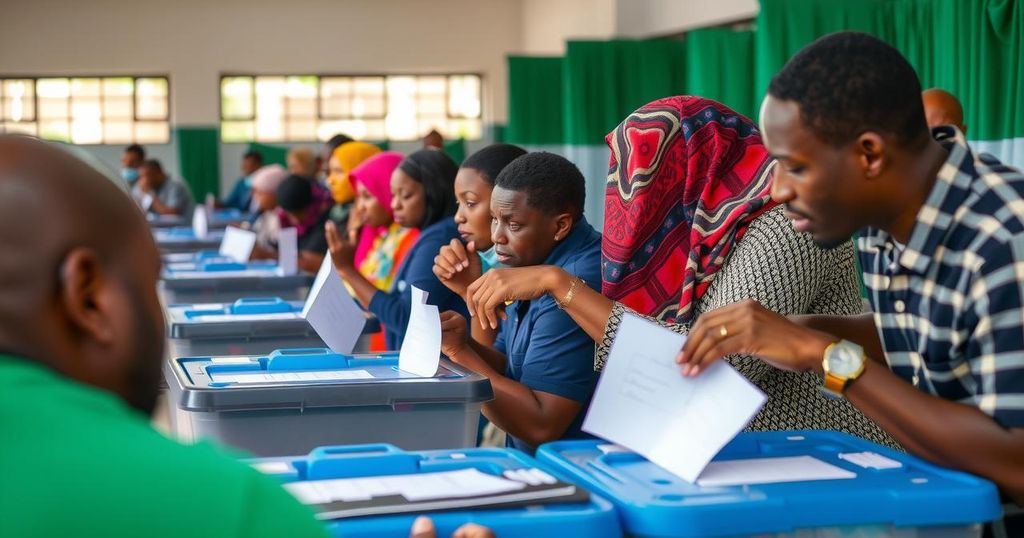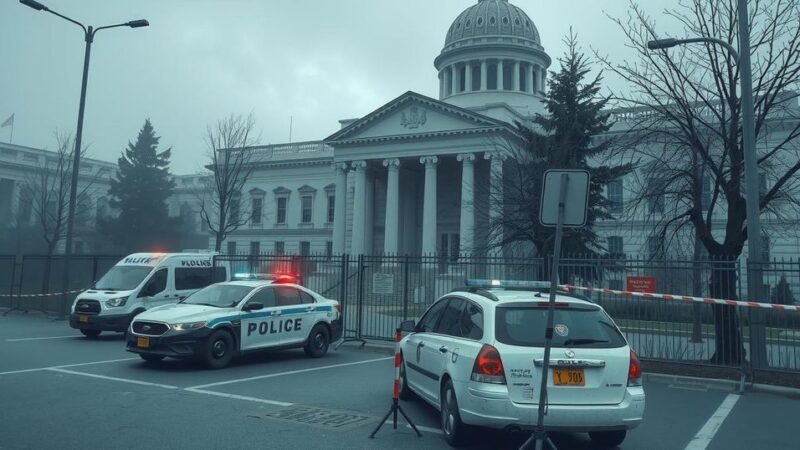Voters in Comoros are electing a new parliament amid allegations of electoral irregularities following President Assoumani’s re-election last year. Approximately 338,000 registered voters will participate, as nearly 100 candidates compete for the 33-seat parliament. Opposition parties are divided on whether to boycott the elections, citing concerns over authoritarianism and succession plans within Assoumani’s administration. Results are expected by Friday.
Voters in the Comoros are preparing to cast their ballots for the 33-seat parliament amid allegations of electoral irregularities following President Azali Assoumani’s re-election last year. Approximately 338,000 registered voters are expected to participate in the electoral process, which commenced on Sunday. Comoros has not held parliamentary elections since January 2020, and nearly 100 candidates have been cleared by the Supreme Court to compete in this election.
President Assoumani, who has been in power since a 1999 coup and has won multiple electoral victories, faces accusations from his opponents regarding authoritarian practices and potential plans to position his eldest son, Nour El-Fath, as his successor after 2029. In 2024, Assoumani bestowed significant governmental powers upon his son, further raising suspicions. While some opposition parties, like Juwa, advocate for a boycott led by the imprisoned former President Ahmed Abdallah Sambi, others remain committed to participating in the election to highlight the prevailing issues within the current regime.
Hamidou Karihila of the opposition Hope of the Comoros party stated, “The Azali regime is weakened … by participating in these elections we are contributing to further exposing the flaws in its system and accelerating its inevitable fall.” Election results are anticipated by Friday, following this momentous political event.
The Comoros, an island nation located in the Indian Ocean, has a tumultuous political history characterized by coups and allegations of electoral malpractice. President Azali Assoumani has been a dominant figure in Comorian politics since 1999. Despite several elections, concerns regarding the integrity of the electoral process have frequently emerged, particularly from opposition groups. The upcoming parliamentary elections mark a crucial moment in the nation’s political landscape, with significant implications for the balance of power and governance in the Comoros.
The parliamentary elections in Comoros present a significant opportunity for voters to influence the political landscape amidst widespread accusations of irregularities and authoritarian rule. With many registered voters participating and a divided opposition, the response to this election may well shape the future of governance in the archipelago. The eventual outcomes, to be announced shortly, will be closely monitored for their implications on both national stability and the ruling regime’s endurance.
Original Source: www.areanews.com.au







